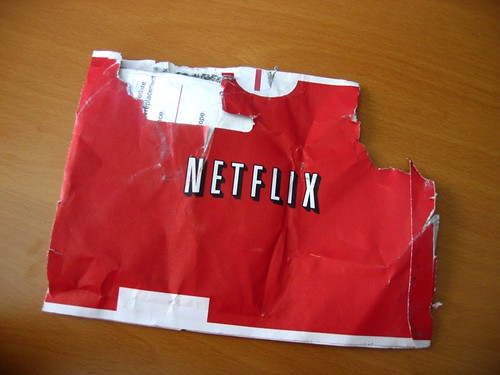 How far can PR help when a brand’s business model is so clearly flawed? That must be the question the Netflix PR team is asking itself this week.
How far can PR help when a brand’s business model is so clearly flawed? That must be the question the Netflix PR team is asking itself this week.
As a tech PR agency, we’ve advised and managed a fair few product/service announcements over the years. So I was interested to read some of the backlash to Netflix’s recent launch of Qwikster, the US company’s rebranded DVD-by post service.
If you haven’t kept up with the story so far, here’s the background:
- Netflix is the US equivalent of LoveFILM and, as you can imagine, is struggling to reposition itself as we all move away from DVDs towards online streaming
- In July, Netflix announced that it was splitting its DVD rental and streaming services (before you had been able to get both services in the one plan)
- This caused furore as customers realised they would have to pay twice for a service they currently receive
- Since July, Netflix has seen its stock plummet
- This week, Netflix co-founder and CEO Reed Hastings, penned a blog post apologising for past mistakes and announcing Qwikster
To say Netflix has experienced a negative press reaction after this blog post is an understatement.
It’s easy to see that Netflix is between a rock and a hard place. Ironically, it was a company that, years ago, saw a niche in the market and brought about the decline of Blockbuster and other traditional video rental companies. But it too is now experiencing a crisis moment as online streaming renders DVDs useless and as other media companies and publishers aim to capitalise on consumer appetite for content.
But despite the tricky situation Netflix finds itself in, the way it has handled the launch of Qwikster has hardly showered it in plaudits.
Get your positioning right and then test it (and then test it again)
Whenever we kick start a tech PR campaign we always recommend spending time with the company in question to go over messaging and positioning, especially if it relates to a new product or launch. It’s important; working out how the company wants to present itself to the audiences it is trying to reach.
How you position your company might seem obvious to you, but it might not seem so obvious to your customers, especially if you are starting a new company or rebranding an existing one. The way Hastings positions the rebranded company in his blog post is laughable – “In a few weeks, we will rename our DVD by mail service to “Qwikster”. We chose the name Qwikster because it refers to quick delivery. We will keep the name “Netflix” for streaming.”
That’s not positioning. He tries in vain to explain to customers why this path is a necessary one for the company, but it isn’t convincing.
Get the branding right
Another clear failing for Netflix is the rebrand itself. Rebranding the part of your business everyone knows you for (DVD rental) and then merely transferring this brand to a new service (movie streaming) seems confusing and bizarre.
‘Qwikster’ as a brand name has many things going against it; it has little obvious link with the Netflix brand and the company clearly failed to check things like Twitter accounts before launching – pretty common sense stuff these days.
Make your customers feel valued
Following the pricing changes, Netflix customers vented loud and clear. While the blog post acknowledges this fact, it doesn’t ‘give anything back’. How hard would it be for the company to come out and say sorry, give existing customers a discount on future services or tempt customers that have left back with a few months’ free rentals?
The blog post started off as an apology, but it didn’t really give any concessions to angry customers – just announced a rebrand. Can you see why they are upset?
Communicate and be transparent
In his blog post, Reed Hastings admits that he was slow to respond to customer reactions and failed to communicate enough. He blames this on the fact that Netflix was trying so hard to innovate, move forwards and create new business opportunities – “When Netflix is evolving rapidly, however, I need to be extra-communicative. This is the key thing I got wrong.”
Netflix is clearly a brand in trouble but the actions of the company over the last few months has hardly won it any plaudits. It’s impossible to imagine that no-one at the company saw this backlash coming, which suggests that it is in a desperate situation.
As a tech PR agency, we work with many companies at the ‘cutting edge’ many of whom have disruptive technologies. Protecting your business from technological change is increasingly important across the board. The importance of communicating these changes to your customer base in a way that doesn’t make them feel like dirt is something Netflix has failed to do and that many other companies should take note of.

